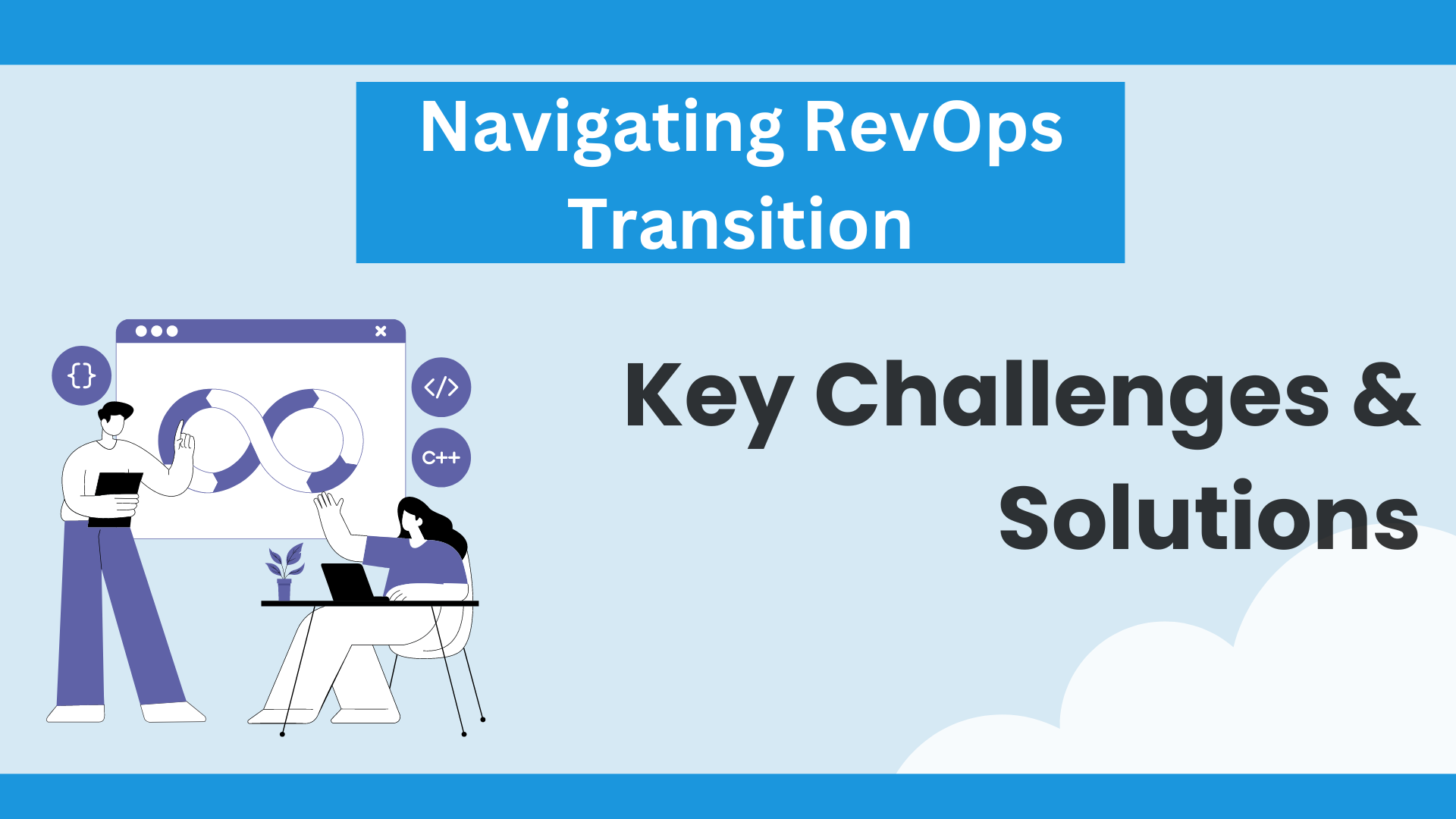Transitioning to Revenue Operations (RevOps) is a strategic move that aligns sales, marketing, and customer success teams to drive revenue growth and efficiency. However, the shift to this strategic move is not without its challenges. Understanding these challenges and how to overcome them is crucial for a successful implementation. Let’s dive into some of those:
Fragmented Data and Systems
One of the most significant challenges in transitioning to RevOps is dealing with fragmented data and systems. A striking 47% of companies report that their data is siloed and difficult to access. This fragmentation leads to inefficiencies and communication breakdowns between teams, as data is spread across multiple systems.
Solution: Implement a centralized Customer Relationship Management (CRM) system to consolidate data across all teams, improving team productivity by up to 34%. This unified approach enhances collaboration and decision-making, ensuring that every department works from the same playbook.
Manual and Time-Consuming Processes
Impact: Many businesses still rely on manual processes, with employees spending an average of 4.5 hours per week on manual data entry tasks alone. These tasks are also prone to human error. As a result, operations slow down, and resources are diverted from more strategic activities, ultimately reducing overall productivity and growth potential.
Solution: Automate routine tasks to save up to 20% of labor time. This approach streamlines processes, reduces human error, and frees up time for employees to focus on strategic, value-added activities, resulting in a more efficient and productive workforce.
Lack of Real-Time Visibility
Impact: A lack of real-time visibility into data is a common issue, with 40% of sales teams reporting that limited visibility negatively impacts their revenue. Without real-time insights, teams struggle to make quick, informed decisions, leading to missed opportunities and slower response times, which are detrimental in a fast-paced business environment.
Solution: Invest in tools and systems that provide real-time data access. These tools allow teams to make faster, more informed decisions, accelerate response times, and improve overall performance. Real-time visibility into key metrics ensures that teams are always equipped with the latest information.
Scalability Issues
Impact: As companies grow, scalability becomes a critical challenge. In fact, 61% of companies struggle to scale their operations efficiently. Without scalable processes in place, businesses face bottlenecks that hinder growth and limit their ability to respond effectively to market changes. This lack of scalability can prevent businesses from reaching their full potential
Solution: Encourage cross-functional collaboration between teams, especially between sales and marketing, to develop scalable processes that support growth. Strong alignment between these teams can lead to 20% annual revenue growth and ensure that all departments move in the same direction, making it easier to scale operations as the business expands.
Transitioning to RevOps is a complex process, but by addressing these challenges with the right solutions, your organization can unlock significant benefits, including improved efficiency, better data management, and scalable growth. By focusing on centralizing data, automating processes, fostering collaboration, and investing in continuous training, your business can successfully navigate the transition to RevOps and position itself for long-term success.





Leave a Comment